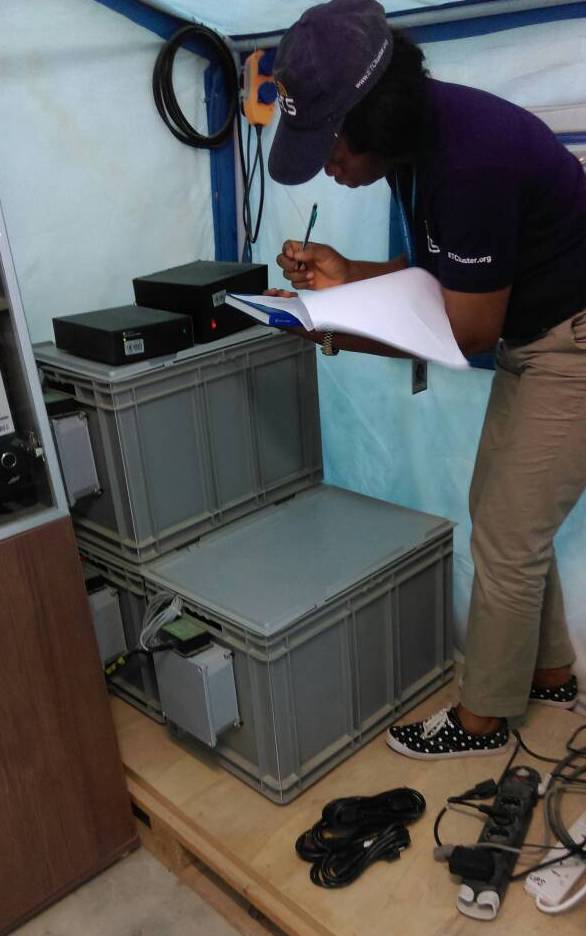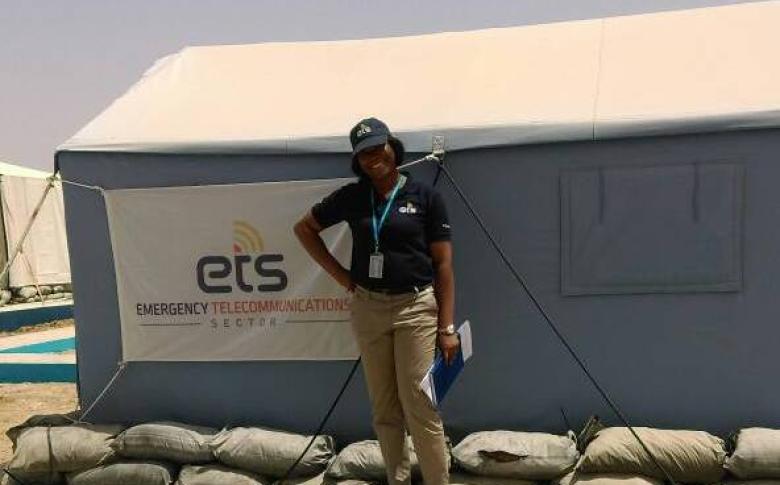
Meet Esther Attah, ETS Business Support Assistant in Nigeria

Since Esther left her home town in Abia State to settle down in Maiduguri in 2005, her eyes have witnessed one of the most turbulent times in Nigeria’s history. Seeing her friends and relatives become more and more afraid of the deteriorating situation in Maiduguri sparked a burning desire in her to become a humanitarian and make an impact. Esther joined the Emergency Telecommunications Sector (ETS) in November 2017 as a business support assistant and, for the past three months, she has been breaking gender stereotypes. Today we mark International Women’s Day, whose theme this year is “Time is Now: Rural and urban activists transforming women’s lives”, by highlighting Esther’s role with the ETS in Nigeria, a country ravaged by gender-based violence spread by insurgent groups in the north-eastern part of the country.
Question: What’s it like working with the ETS?
Answer: I studied sociology and disaster risk management and worked as an administrator at the University of Maiduguri. This is my first job with the United Nations (UN), and also my first experience in the Information Technology (IT) field. Although I still have plenty to learn and many skills to develop, working with the ETS will give me more international exposure and a clearer dedicated career path.
The best part of my job is knowing that what I do every day helps people get their humanitarian assistance on time. When going on mission to humanitarian hubs in remote locations in Borno State [humanitarian hubs established in Borno provide humanitarians with secure accommodations, office spaces, storage areas and critical ETS communications services, enabling an efficient response], we face severe risks. But all those worries disappear when I see the endless queues of women standing in the sun for food and water and I realise how lucky I am.
Q: What are your main responsibilities?

A: There is no typical day for me with the ETS team, every day is an adventure. Managing all the ETS admin, travel arrangements and logistics related activities is what keeps me busy. As I am the only non-technical member of the team, I need to maintain a close collaboration with other units in the World Food Programme (WFP), especially security and supply chain, to ensure the ETS equipment is properly stored and timely dispatched to the humanitarian hubs when required. My work behind the scenes is critical for the efficient provision of ETS services.
Q: What challenges have you faced?
A: Being a business support assistant is a role that has been traditionally linked to male figures [in Nigeria] as it involves frequent visits to the dusty warehouse, organising boxes and moving heavy equipment constantly.
Even though I am the only female member in the ETS team and I feel appreciated and comfortable with my colleagues, I am under the impression I am challenging gender stereotypes every day.
Q: One wish for North-East Nigeria
A: When I arrived in Maiduguri 13 years ago, this state [Borno state] was known as “home of peace”. I wish the current conflict in North-East Nigeria finishes soon as enough harm has already been done. If Borno manages to be the “home of peace” again, it will make me proud of how my work contributed to achieving this.
By Erika Iglesias, deployed as ETS Information Management Officer, IT Emergency Preparedness & Response branch, World Food Programme